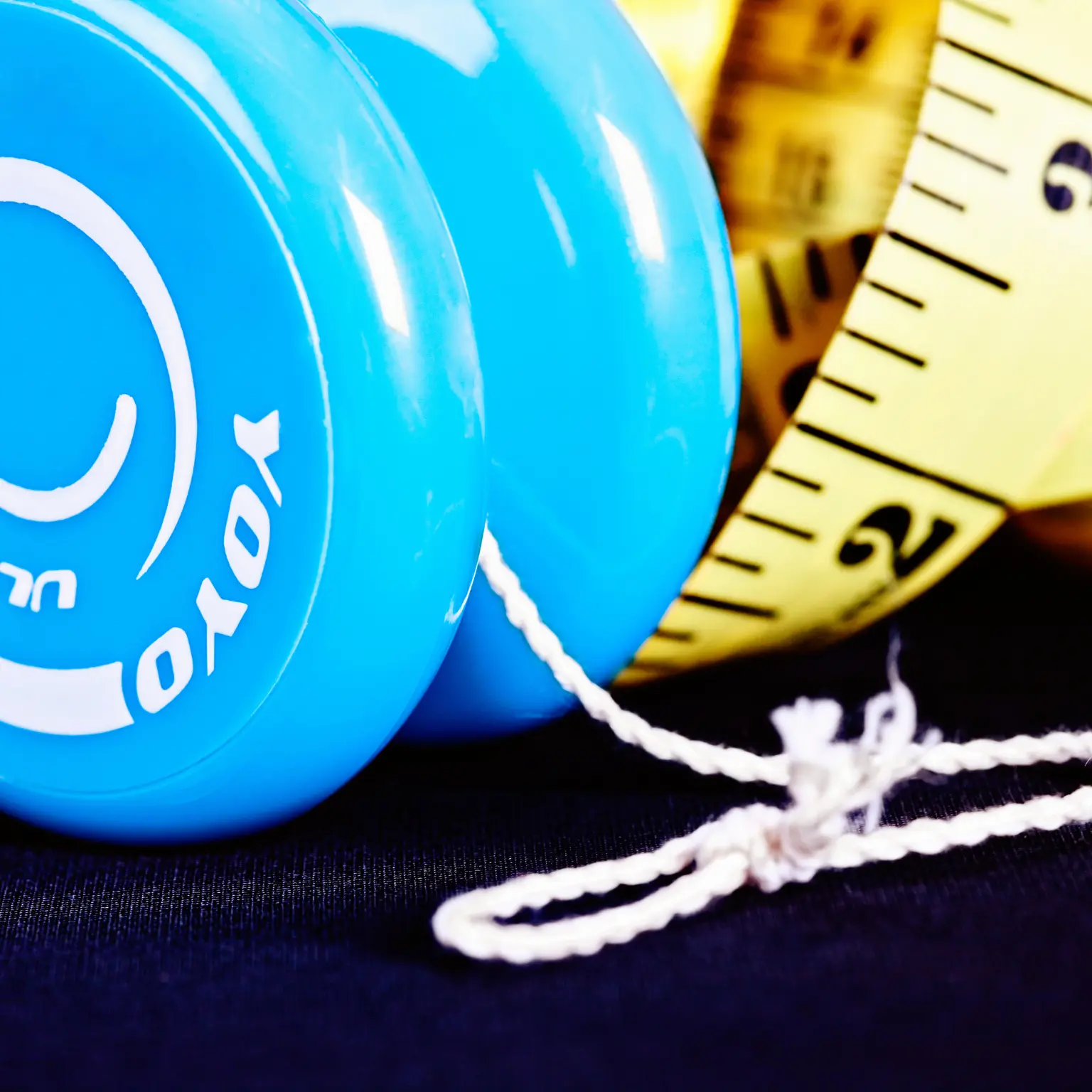How to Set SMART Weight Loss Goals: Your Roadmap to Success?

Embarking on a weight loss journey can be both exciting and challenging. The path to a healthier you is often paved with good intentions, but without a clear direction, it’s easy to lose focus and motivation. That’s where SMART weight loss goals come in. Just like a GPS guides you to your destination, SMART goals provide a roadmap for your weight loss journey, increasing your chances of success and ensuring sustainable results.
We at Healthy Stride Wellness understand the importance of setting clear and achievable goals. Many individuals struggle with vague aspirations like “I want to lose weight,” which often leads to frustration and disappointment. By setting SMART weight loss goals, you’ll gain clarity, focus, and a sense of purpose, making your weight loss journey more enjoyable and rewarding. In this comprehensive guide, we’ll delve into the world of SMART goals, explore how to set them effectively, and provide practical tips for achieving lasting weight loss success.
Table of Contents
Key Takeaways
- Setting SMART weight loss goals is a crucial first step in achieving sustainable weight loss. By making your goals Specific, Measurable, Achievable, Relevant, and Time-Bound, you create a clear roadmap for your journey. This approach eliminates vague aspirations and replaces them with actionable targets, fueling your motivation and increasing your chances of success. Remember, personalized and realistic goals are key. Consult with a healthcare professional or registered dietitian to tailor a plan that suits your individual needs and lifestyle.
- Once you’ve set your SMART goals, create a comprehensive weight loss plan that encompasses dietary changes, exercise, and lifestyle modifications. Track your progress diligently, using tools like a scale, measuring tape, or food diary. Celebrate small victories along the way, and don’t be afraid to adjust your goals or strategies as needed. Remember, consistency is key, and setbacks are a natural part of the process. Embrace them as learning opportunities and keep moving forward.
- Staying motivated throughout your weight loss journey is essential. Surround yourself with a supportive network of friends, family, or a weight loss group. Focus on non-scale victories, such as increased energy levels, improved mood, and better sleep. Practice positive self-talk and remind yourself of your “why” – the reasons that inspired you to embark on this journey. With the right mindset, tools, and support, you can achieve your SMART weight loss goals and transform your health and well-being.
Understanding SMART Goals
Before we dive into crafting your personalized weight loss roadmap, let’s decode the acronym that will guide your success: SMART.
What are SMART Goals?
SMART is an acronym that stands for:
- Specific: Your goal should be clear and well-defined. Avoid vague statements like “I want to lose weight.” Instead, specify exactly how much weight you want to lose or what body composition changes you want to achieve.
- Measurable: Your goal should be quantifiable so you can track your progress. Use tools like a scale, measuring tape, or body fat analyzer to track your progress over time.
- Achievable: Your goal should be realistic and attainable, considering your current lifestyle, resources, and time constraints. Setting overly ambitious goals can lead to discouragement and ultimately derail your efforts.
- Relevant: Your goal should be meaningful and align with your overall values and priorities. Why do you want to lose weight? Is it for health reasons, to improve your fitness, or to boost your confidence? Ensure your goal resonates with your deeper motivations.
- Time-Bound: Your goal should have a specific deadline. This creates a sense of urgency and helps you stay focused and motivated.
By adhering to these criteria, you create a goal that is not only well-defined but also actionable and motivating.
Why SMART Goals are Crucial for Weight Loss?
Setting SMART weight loss goals is like having a detailed map for your journey. It provides direction, keeps you on track, and helps you measure progress. Here’s why SMART goals are crucial for weight loss success:
- Increased Focus and Clarity: When your goals are specific and well-defined, you know exactly what you’re working towards. This clarity helps you focus your efforts and avoid distractions.
- Enhanced Motivation: Measurable goals allow you to track your progress and celebrate small victories along the way. This positive reinforcement fuels your motivation and keeps you engaged in your weight loss journey.
- Improved Decision-Making: When your goals are relevant to your values and priorities, you’re more likely to make choices that support your weight loss efforts.
- Greater Accountability: Time-bound goals create a sense of urgency and accountability. Knowing you have a deadline motivates you to take action and stay on track.
- Flexibility and Adaptability: SMART goals are not set in stone. They can be adjusted and refined as needed to accommodate your changing needs and circumstances.
In the realm of weight loss, where progress can sometimes feel slow and setbacks are inevitable, SMART goals offer a structured approach that maximizes your chances of success. By setting clear, measurable, achievable, relevant, and time-bound goals, you empower yourself to take control of your health and achieve the transformation you desire.
How to Set SMART Weight Loss Goals?
Now that you understand the power of SMART goals, let’s break down how to apply this framework to your weight loss aspirations. Each letter of the acronym represents a critical aspect of creating effective goals:
Specific
Vague goals like “lose weight” are like shooting arrows in the dark. To hit the bullseye, you need a clear target. Get specific by defining the exact amount of weight you want to lose. For instance, instead of saying “I want to lose weight,” state “I want to lose 15 pounds.”
Specificity extends beyond the numbers on the scale. Consider your ideal body composition: Do you want to reduce your body fat percentage? Gain muscle mass? Define specific targets for these metrics as well.
Measurable
What gets measured, gets managed. Make your weight loss goals measurable by tracking your progress regularly. This can be done through various methods:
- Weigh-ins: Step on the scale at consistent intervals (e.g., weekly or bi-weekly) to monitor changes in your weight.
- Measurements: Use a measuring tape to track your waist circumference, hip circumference, and other relevant body measurements.
- Body fat percentage: Consider using a body fat analyzer to track changes in your body composition over time.
- Progress photos: Take photos of yourself at regular intervals to visually track your progress.
By consistently tracking your progress, you’ll gain valuable insights into the effectiveness of your weight loss strategies and stay motivated as you see positive changes.
Achievable
While ambition is admirable, setting unrealistic goals can set you up for disappointment and demotivation. Your goals should be challenging yet attainable, taking into account your current lifestyle, resources, and time constraints.
Consider factors like your work schedule, family commitments, dietary preferences, and access to exercise facilities. If you’re a busy parent with a demanding job, aiming to lose 10 pounds in a week might not be feasible. Instead, aim for a more gradual and sustainable rate of weight loss, such as 1-2 pounds per week.
Consulting with a healthcare professional or registered dietitian can be invaluable in setting achievable weight loss goals. They can assess your individual needs and provide personalize
Relevant
Your weight loss goals should be relevant to your life and your values. They should reflect what’s important to you and motivate you to make the necessary changes. Ask yourself:
- Why do I want to lose weight?
- What are the benefits I hope to gain?
- How will weight loss improve my life?
Your answers will help you set goals that resonate with your deeper motivations. For example, your goal might be to:
- Improve your health and reduce the risk of chronic diseases.
- Boost your energy levels and feel more vibrant.
- Gain confidence and self-esteem.
- Fit into your favorite clothes again.
- Be able to participate in activities you enjoy.
When your goals are personally relevant, you’re more likely to stay committed to them, even when faced with challenges or setbacks.
Time-Bound
Setting a deadline for your weight loss goals is like adding a turbocharger to your efforts. It creates a sense of urgency and helps you avoid procrastination. A time-bound goal provides a clear target date to work towards, keeping you focused and motivated.
When setting a deadline, consider the following:
- Your starting weight: The amount of weight you need to lose will influence your timeframe.
- Your desired rate of weight loss: A healthy and sustainable rate of weight loss is generally 1-2 pounds per week.
- Your lifestyle and commitments: Consider your work schedule, family responsibilities, and other commitments when setting a deadline.
Remember, your deadline should be realistic and achievable. Setting an unrealistic deadline can lead to discouragement and frustration if you don’t meet it. Consult with a healthcare professional or registered dietitian to help you set a timeline that aligns with your individual needs and circumstances.
Tips for Achieving Your SMART Weight Loss Goals
You’ve crafted your SMART goals – they’re specific, measurable, achievable, relevant, and time-bound. Now, let’s turn them into reality with these actionable tips:
Create a Weight Loss Plan
A well-structured plan is your compass on this journey. It outlines the steps you’ll take to reach your destination, making your goals less abstract and more actionable. Your weight loss plan should encompass three key elements:
- Dietary Changes
- Calorie Management: Determine your daily calorie needs based on your age, gender, activity level, and weight loss goals. Aim to create a calorie deficit for weight loss. Consider consulting a registered dietitian for personalized guidance.
- Healthy Eating Patterns: Focus on whole, unprocessed foods like fruits, vegetables, lean proteins, and whole grains. Limit sugary drinks, processed foods, and unhealthy fats.
- Mindful Eating: Pay attention to hunger and fullness cues. Eat slowly, savor each bite, and avoid distractions while eating.
- Exercise
- Find Activities You Enjoy: Choose physical activities that you find fun and sustainable. This could include anything from brisk walking and swimming to dancing and strength training.
- Set a Schedule: Create a workout schedule that fits your lifestyle and commit to it. Aim for at least 150 minutes of moderate-intensity or 75 minutes of vigorous-intensity exercise per week, spread out over several days.
- Vary Your Workouts: Incorporate a variety of activities to keep things interesting and challenge different muscle groups.
- Lifestyle Modifications
- Stress Management: Find healthy ways to manage stress, such as meditation, yoga, or spending time in nature. Chronic stress can hinder weight loss efforts.
- Sleep: Aim for 7-8 hours of quality sleep each night. Sleep deprivation can disrupt hormone balance and increase appetite.
- Hydration: Drink plenty of water throughout the day to support your metabolism and overall health.
- Social Support: Enlist the support of friends, family, or a weight loss group. Having a support system can make a big difference in your journey.
Track Your Progress
Regularly tracking your progress is essential for staying motivated and making necessary adjustments to your weight loss plan.
- Weigh-ins: Weigh yourself at the same time each week, preferably in the morning after using the bathroom and before eating or drinking.
- Measurements: Measure your waist, hips, and other relevant areas to track changes in body composition.
- Food Diary: Keep a food diary to monitor your calorie intake and identify patterns in your eating habits.
- Fitness Tracker: Use a fitness tracker to monitor your physical activity levels and calorie expenditure.
By tracking your progress, you can celebrate your successes, identify areas for improvement, and make adjustments to your plan as needed. It’s also a powerful motivator to see how far you’ve come and keep pushing forward towards your goals.
Stay Motivated
Staying motivated is crucial for achieving any goal, and weight loss is no exception. It’s easy to get discouraged when the scale doesn’t budge as quickly as you’d like or when you face unexpected challenges. However, with a few strategies, you can keep your motivation high and stay committed to your SMART goals.
- Find a Support System: Share your goals with friends, family, or a weight loss group. Their encouragement and accountability can make a world of difference. You can also find online communities or forums where you can connect with others who are on a similar journey.
- Celebrate Small Victories: Don’t just focus on the big picture. Celebrate small wins along the way, such as losing a few pounds, fitting into smaller clothes, or feeling more energized. These small victories add up and can keep you motivated to continue.
- Set Rewards: Give yourself non-food rewards for achieving your milestones. This could be a new book, a massage, or a fun activity you enjoy. Rewards can help you stay focused and make the journey more enjoyable.
- Focus on Non-Scale Victories: Weight loss is not just about the numbers on the scale. Pay attention to other positive changes, such as improved energy levels, better sleep, increased strength, and enhanced mood. These non-scale victories are just as important as weight loss and can be a powerful source of motivation.
- Practice Positive Self-Talk: Your thoughts have a powerful impact on your actions. Replace negative self-talk with positive affirmations. Instead of saying, “I’ll never reach my goal,” tell yourself, “I am capable and strong. I can do this.”
- Be Patient and Persistent: Remember, weight loss is a journey, not a race. There will be ups and downs, but the key is to stay persistent and keep moving forward. Don’t let setbacks derail your progress. Learn from them, adjust your approach if needed, and keep your eyes on the prize.
By implementing these strategies, you’ll be well-equipped to overcome challenges, maintain motivation, and achieve your SMART weight loss goals. Remember, Healthy Stride Wellness is here to support you every step of the way, providing you with the resources and guidance you need to succeed.
Overcoming Challenges and Setbacks
Weight loss is rarely a linear path. You might encounter plateaus or experience occasional slip-ups. These are normal parts of the journey, and how you handle them can make all the difference in your long-term success.
Dealing with Plateaus
A weight loss plateau is a frustrating experience where your weight stagnates despite your continued efforts. It’s a common occurrence, especially after initial rapid weight loss. Several factors can contribute to plateaus, including:
- Metabolic Adaptation: As you lose weight, your body requires fewer calories to function, which can slow down your metabolism.
- Muscle Loss: If you’re not strength training, you might lose muscle mass along with fat, which can further reduce your metabolic rate.
- Water Retention: Fluctuations in water weight can mask actual fat loss.
- Calorie Creep: You might unknowingly be consuming more calories than you realize due to small indulgences or inaccurate tracking.
If you hit a plateau, don’t despair. Here are some strategies to overcome it:
- Reassess Your Calorie Intake: Ensure you’re still in a calorie deficit. You might need to slightly reduce your calorie intake or increase your activity levels to continue losing weight.
- Increase Exercise Intensity or Duration: Challenge your body by increasing the intensity or duration of your workouts.
- Focus on Strength Training: Building muscle can boost your metabolism and help you break through the plateau.
- Manage Stress: Chronic stress can contribute to weight loss plateaus. Find healthy ways to manage stress, such as yoga, meditation, or spending time in nature.
- Revisit Your Goals: Are your goals still realistic and achievable? Adjust them if necessary to ensure they align with your current circumstances.
- Be Patient: Plateaus are usually temporary. Stay consistent with your healthy habits, and your weight loss will eventually resume.
Managing Slip-Ups
We’re all human, and slip-ups are bound to happen on any weight loss journey. You might overindulge at a party, skip a few workouts, or simply have a day where your willpower falters. The key is to not let these slip-ups derail your progress.
Here’s how to handle slip-ups:
- Forgive Yourself: Don’t beat yourself up over a single misstep. Everyone has off days. Acknowledge the slip-up, learn from it, and move on.
- Get Back on Track Immediately: Don’t let one slip-up turn into a week-long binge. Return to your healthy habits as soon as possible.
- Analyze the Situation: Reflect on what triggered the slip-up. Was it stress, a particular event, or a certain food? Identifying triggers can help you avoid similar situations in the future.
- Don’t Give Up: Remember, one slip-up doesn’t undo all your hard work. Focus on the bigger picture and keep moving forward toward your goals.
By approaching slip-ups with self-compassion and a proactive mindset, you can overcome these challenges and continue making progress on your weight loss journey. Remember, Healthy Stride Wellness is here to support you every step of the way.
In Short
Setting SMART weight loss goals is not merely a step; it’s the cornerstone of a successful and sustainable journey toward a healthier you. Healthy Stride Wellness has illuminated the path, demonstrating how these well-defined, measurable, achievable, relevant, and time-bound goals act as your personalized roadmap to weight loss success.
By embracing the SMART framework, you transform vague aspirations into actionable targets, fueled by clarity, focus, and unwavering motivation. You equip yourself with the tools to track your progress, celebrate victories, and navigate challenges with resilience. Remember, your weight loss goals are not just about shedding pounds, but about embracing a healthier lifestyle that nourishes your body and mind.
Healthy Stride Wellness is here to support you every step of the way. We encourage you to explore our additional resources, connect with our community, and embark on this transformative journey toward a healthier, happier you. Your success is our priority, and together, we can make your weight loss goals a reality.
FAQs
How do I know if my goals are realistic?
Realistic goals are those you can reasonably achieve given your lifestyle, resources, and time constraints. Consult a healthcare professional or registered dietitian to discuss your individual needs and create a personalized plan with attainable milestones. Remember, healthy weight loss is typically 1-2 pounds per week.
What should I do if I don’t see progress?
If you hit a weight loss plateau, don’t panic. Plateaus are common and can be overcome. Reassess your calorie intake, ensure you’re in a deficit, and consider adjusting your exercise routine. Focus on strength training to build muscle and boost metabolism. Manage stress levels and prioritize sleep. Remember, progress isn’t always linear, and patience is key.
Can I change my goals along the way?
Absolutely! Your goals should evolve with your progress and circumstances. If you find your initial goals were too ambitious or not challenging enough, don’t hesitate to adjust them. The key is to ensure your goals remain SMART – Specific, Measurable, Achievable, Relevant, and Time-Bound.
How do I stay motivated when I face challenges?
Weight loss journeys are rarely smooth sailing. Motivation can fluctuate, and challenges are inevitable. To stay motivated:
- Find a support system: Surround yourself with encouraging friends, family, or a weight loss group.
- Celebrate small victories: Acknowledge and reward your progress, no matter how small.
- Focus on non-scale victories: Pay attention to improvements in energy levels, mood, strength, and overall well-being.
- Practice positive self-talk: Replace negative thoughts with affirming statements.
Remind yourself of your “why”: Reconnect with your reasons for wanting to lose weight.
Please Note: Healthy Stride Wellness provides educational content and is not a replacement for medical advice. Consult a healthcare provider for any health issues.




